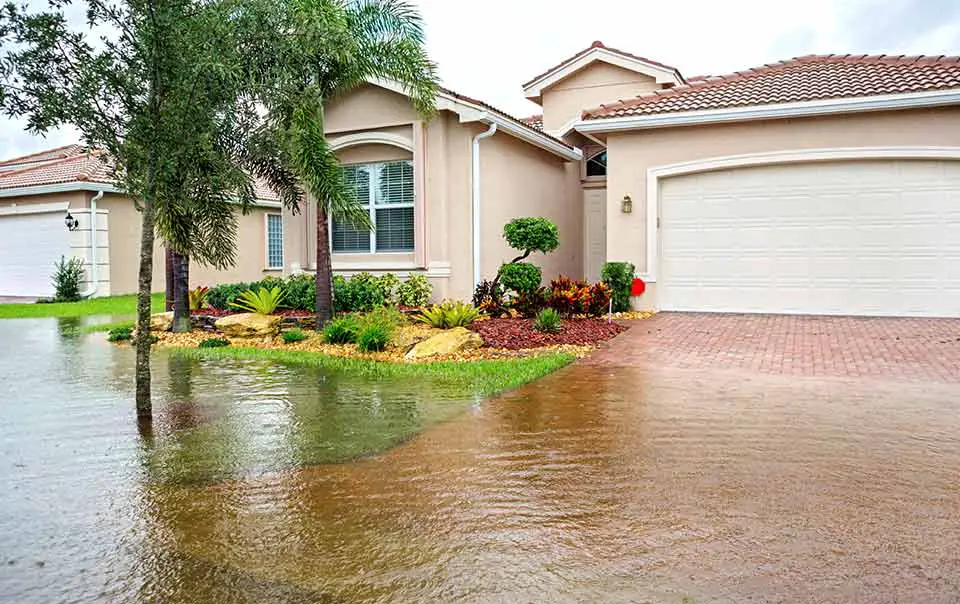Table of Contents
Floods are one of the most destructive natural disasters, and they can cause severe damage to your home. Unfortunately, standard homeowner’s insurance typically doesn’t cover floods—so it’s essential to understand how to protect yourself in the event of a flood.
Does Homeowners Insurance Cover Flood Damage?
No, typical homeowners insurance does not cover flood damage, and you must usually purchase additional Flood insurance. In addition, homeowners’ insurance does not cover Ground seepage, flooding, water or sewer pipe backups, or poorly maintained lines that lead to leaks.

First and foremost, it’s essential to understand that most homeowners’ insurance policies do not cover flooding. While some policies include some degree of coverage for water damage caused by extreme weather such as hurricanes or tornadoes, these rarely cover flooding from overland water sources such as rivers, streams, and lakes—all the more so regarding groundwater flooding from storms.
The good news is that you can purchase separate flood insurance for your home through the National Flood Insurance Program (NFIP). This program is administered by the Federal Emergency Management Agency (FEMA) and provides low-cost coverage for up to $250,000 worth of property damage from floodwaters. The cost of coverage depends on factors such as where your home is located relative to local floodplains and how much protection you choose.
It’s also important to note that NFIP policies often come with exclusions or limited coverage for certain kinds of losses, such as those stemming from groundwater flooding or if you live in an area frequently affected by floods. Therefore, it’s best to thoroughly read through your policy before signing up for coverage to know precisely what kinds of losses are covered and what isn’t.
In addition to purchasing a separate flood policy through NFIP, private insurers offer additional coverage options explicitly tailored for households in high-risk areas prone to flooding. Therefore, it’s essential to shop around and compare different policies before making a final decision—not only because premiums will vary between companies but also because other insurers offer different packages with varying levels of protection and deductible amounts.
What water damages are covered by homeowners insurance?
Water damage is one of the most common reasons homeowners claim insurance. Understanding what a homeowner’s insurance policy covers regarding water damage is essential. This article explores the types of water damage typically covered by homeowners insurance policies, along with additional facts and details to help you better understand the extent of your coverage.
Rain or Snow Storm:
Severe rain or snow storms can potentially cause significant water damage to your home. Homeowners insurance often covers damages caused by rainwater damage and snowmelt, mainly if they infiltrate your home through windows and doors. Proper home maintenance is essential to prevent water damage, as negligence might lead to denied claims.
Plumbing-Related Water Damage:
Perhaps the most common water damage issue homeowners face comes from plumbing problems. Homeowners’ insurance policies typically cover plumbing-related water damage, including burst pipes, frozen plumbing, faulty plumbing, and accidental overflow. However, policies often exclude damage due to lack of maintenance or negligence, like failing to address a known leak.
Water Damage from Extinguishing a Fire:
In the unfortunate event of a fire in your home, your homeowner’s insurance policy typically covers the resulting water damage from extinguishing efforts. This inclusion considers that water damage may be an unintended consequence of saving your property from fire destruction.
Leaking Roof:
Homeowners’ insurance policies often cover water damage due to a leaking roof. However, coverage generally applies only to the interior of your home and damage caused to personal belongings. In addition, the cost of repairing or replacing the roof is typically not included, as it is considered the homeowner’s responsibility to maintain the structure.
Accidental Overflow of Appliances or Fixtures:
Water damage resulting from the accidental overflow of an appliance (e.g., washing machine, dishwasher) or fixture (e.g., toilet, bathtub) is commonly covered by homeowners insurance. However, your claim may be denied if the overflow is linked to negligence, such as failing to replace a faulty hose or valve.
Vandalism:
In some cases, water damage may be the result of vandalism. This issue could range from someone intentionally leaving faucets running to removing key plumbing components. Coverage for this type of water damage falls under the vandalism provision in most homeowners insurance policies.
Mold:
Homeowners’ insurance typically does not offer blanket coverage for mold damage but may provide coverage if mold develops due to covered water damage. For example, if mold forms due to water damage caused by a burst pipe or leaky roof, it would likely be covered. However, mold resulting from high humidity or lack of ventilation would not be covered.
Understandably, water damage can be disastrous and expensive for homeowners. To avoid finding yourself in a precarious financial situation after a water damage event, carefully reviewing your homeowner’s insurance policy and understanding your coverage is crucial. Ensure you carry a good range for water damage incidents and maintain your property to prevent water-related problems. Talking to your insurance agent about your policy details and asking any questions you may have can help you prepare for the unexpected and navigate through the difficulties of water damage recovery.
Conclusion
Finally, remember that even though purchasing flood insurance can be expensive—especially if you live in an area at risk for frequent inundations—it still may be cheaper than paying out-of-pocket for any repair costs resulting from a major disaster like a storm surge or flash flood. In short, protect yourself against potential financial losses due to flooding by investing in adequate homeowners’ insurance today!
